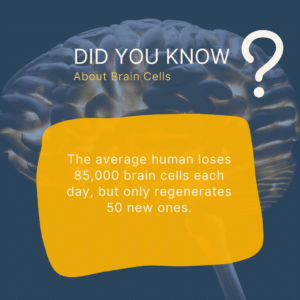Are You Feeling Scattered, Anxious, or Just… Off? You’re Not Alone.
You reach for your phone without thinking. One swipe turns into ten. Minutes vanish. Your brain feels buzzy, distracted, and low-key exhausted—but somehow you keep going. Social media has trained your brain to crave stimulation, even when it’s draining you. And despite the constant scrolling, you don’t feel more connected—you feel more anxious, unfocused, and overwhelmed.
The problem isn’t you. It’s how your brain’s been wired.
The good news? You can rewire your brain for clarity, calm, and real-world joy.
Dr. Trish Leigh isn’t just a neuroscience expert—she’s a global leader in the field of brain health and has helped thousands take back control from compulsive behaviors. Her programs combine cutting-edge brain science with compassionate coaching to guide you back to clarity, confidence, and calm.

The Dopamine Trap: How Social Media Hijacks Your Brain
Science confirms that social media rewires your brain, creating a feedback loop of dopamine spikes and withdrawals—just like other behavioral addictions. If you’re feeling mentally scattered, emotionally unstable, or disconnected from real life, there’s a neurological reason for it.
Every time you scroll and see something new—whether it’s a shocking headline, a funny meme, or a new message—your brain releases dopamine, the “feel good” chemical tied to motivation and reward.
“We’re becoming addicted to external stimulation that’s frying our internal regulation,” Dr. Leigh explains.
Just like with porn addiction, social media hijacks the brain’s reward system. The overstimulation causes your baseline dopamine levels to drop, making everyday life feel dull and unsatisfying. That’s why it’s harder to focus at work, enjoy time with loved ones, or feel content when you’re not on your phone.
It’s Not a Willpower Issue. It’s Brain Wiring.
You’re not weak. You’re wired that way.
It’s not your flaw. It’s a brain pattern. Your nervous system is simply trying to regulate itself the only way it knows how: through external inputs like social media. But you don’t have to stay stuck in the cycle.
Dr. Trish Leigh has helped thousands of men and women rewire their brains —from screen addiction to compulsive behaviors—and she can help you too.
Your 3-Step Plan to Rewire Your Brain
Step 1: See the Damage with a Brain Map
Your healing journey can begin with clarity. Dr. Leigh’s qEEG Brain Map Assessment is a powerful non-invasive scan that shows you exactly how your brain is functioning—and where it’s out of sync. It’s like an MRI for your mind, and it can reveal the root of your symptoms like:
- Anxiety
- Brain fog
- Irritability
- Depression
- Poor sleep
- Lack of motivation
Step 2: Retrain Your Brain from the Inside Out
Dr. Leigh’s custom programs use cutting-edge neurofeedback technology to retrain your brain. You’ll learn how to restore natural regulation and create internal balance—without relying on endless external stimulation.
There’s a better way, a path where your brain works for you, not against you.
Step 3: Enjoy Real-Life Clarity, Calm, and Connection
With the right support, tools, and step-by-step guidance, you’ll reconnect to real-world joys—and stay focused and content without needing constant screen hits.
Ready to Begin Your Journey?
Take the first step toward a clear, focused, and screen-balanced life.
👉 Schedule your qEEG Brain Map Assessment today.
Or give us a call at (919) 301-9968 to learn more.
You don’t need to rely on your phone to feel better. You just need a plan—and some help. Let’s do this.
Recommended Video: In this must-see video, Dr. Trish Leigh explains the hidden neurological link between social media screen addiction and how it rewires your brain to crave constant stimulation.

